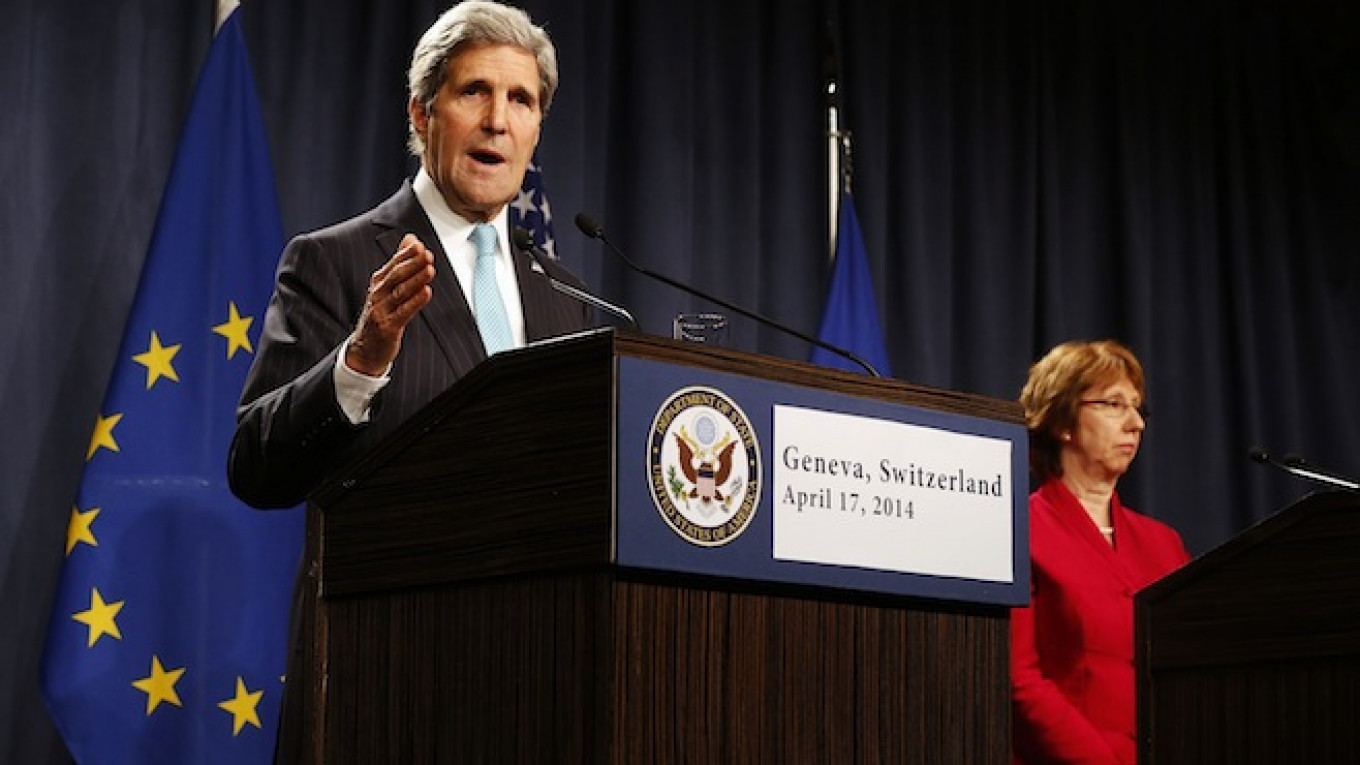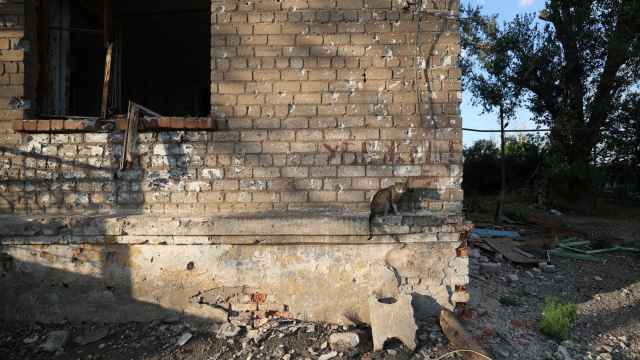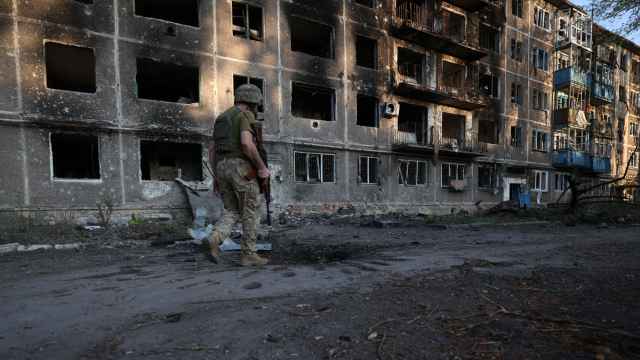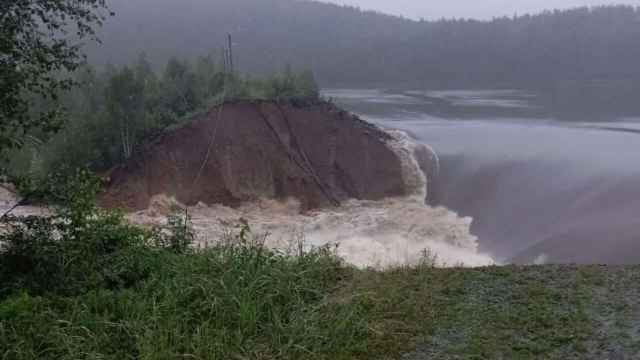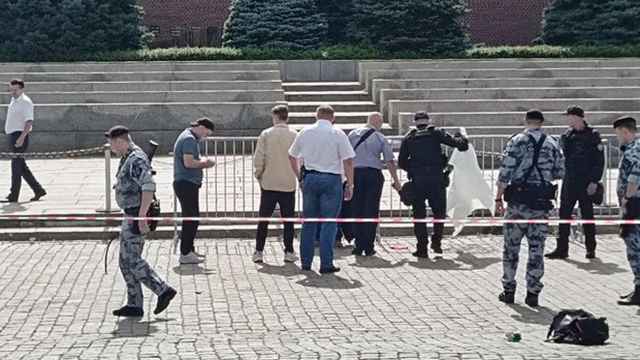The Obama administration denounced as illegal a planned weekend referendum by pro-Russian insurgents pushing for autonomy and independence for portions of eastern Ukraine.
U.S. Secretary of State John Kerry said Tuesday the referendum set for Sunday was "bogus" and not recognized by the West.
In March, Moscow supported an independence referendum in the Ukrainian peninsula of Crimea, which led to its annexation by Russia. Leaders of the anti-government movement say they plan to hold a referendum on autonomy in the areas of Donetsk and Luhansk, although no preparations for the vote have yet been seen.
"We flatly reject this illegal effort to further divide Ukraine," Kerry told reporters after meeting at the State Department with European Union foreign policy chief Catherine Ashton. "Its pursuit will create even more problems in the effort to try to de-escalate the situation."
He added: "This is really the Crimea playbook all over again, and no civilized nation is going to recognize the results of such a bogus effort."
Although Russia has de facto control over Crimea, few nations recognize the move. The U.S. and Europe have hit Russia with sanctions over the annexation and Moscow's continued destabilizing actions in mainly Russian-speaking east Ukraine.
In a nod to the West's refusal to recognize Crimea as part of Russia, State Department spokeswoman Jen Psaki on Tuesday responded to a reporter's question about a potential visit to the region by President Vladimir Putin by saying: "I hope he enjoys his visit to Ukraine."
U.S. officials have said all Ukrainians should vote on their future governance in nationwide elections set for May 25.
President Barack Obama and German Chancellor Angela Merkel said last week they would move to impose harsher sanctions against Russia if it seeks to disrupt the elections.
Testifying before the Senate Foreign Relations Committee, the top U.S. diplomat for Europe, Victoria Nuland, said Tuesday that Russian recognition of another separatist referendum and Russian peacekeepers entering Ukraine would be triggers for the sanctions. If "broad swaths" of Ukraine cannot hold elections, she said, that might be another.
Both Kerry and Ashton lambasted Russia for failing to abide by an agreement to de-escalate tensions in the east and threatened that any move by Moscow to annex additional parts of Ukraine would be met by new sanctions.
Such sanctions, they said, would go beyond penalties already imposed on Russian officials and executives close to Putin and apply to entire sectors of the Russian economy, such as defense, finance and energy.
In Ukraine on Tuesday, Ukrainian troops tightened a security cordon around a major insurgent-held eastern city but pro-Russia militias acted with impunity elsewhere in the turbulent region bordering Russia, surrounding a major Interior Ministry base.
Thirty pro-Russia insurgents and four government troops were killed Monday in operations to expunge anti-government forces around the city of Slovyansk, Ukraine's interior minister said Tuesday. Rebels said 10 people — fighters and civilians — were killed by Ukrainian troops during clashes Monday. They would not elaborate and there was no immediate way to reconcile the figures.
Gun battles on Monday around the city of 125,000 were the interim government's most ambitious effort to date to quell weeks of unrest in Ukraine's east.
A Message from The Moscow Times:
Dear readers,
We are facing unprecedented challenges. Russia's Prosecutor General's Office has designated The Moscow Times as an "undesirable" organization, criminalizing our work and putting our staff at risk of prosecution. This follows our earlier unjust labeling as a "foreign agent."
These actions are direct attempts to silence independent journalism in Russia. The authorities claim our work "discredits the decisions of the Russian leadership." We see things differently: we strive to provide accurate, unbiased reporting on Russia.
We, the journalists of The Moscow Times, refuse to be silenced. But to continue our work, we need your help.
Your support, no matter how small, makes a world of difference. If you can, please support us monthly starting from just $2. It's quick to set up, and every contribution makes a significant impact.
By supporting The Moscow Times, you're defending open, independent journalism in the face of repression. Thank you for standing with us.
Remind me later.



